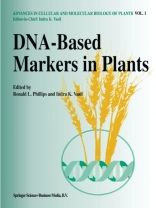The double helix architecture of DNA was elucidated in 1953. Twenty years later, in 1973, the discovery of restriction enzymes helped to create recombinant DNA molecules in vitro. The implications of these powerful and novel methods of molecular biology, and their potential in the genetic manipulation and improvement of microbes, plants and animals, became increasingly evident, and led to the birth of modern biotechnology. The first transgenic plants in which a bacterial gene had been stably integrated were produced in 1983, and by 1993 transgenic plants had been produced in all major crop species, including the cereals and the legumes. These remarkable achievements have resulted in the production of crops that are resistant to potent but environmentally safe herbicides, or to viral pathogens and insect pests. In other instances genes have been introduced that delay fruit ripening, or increase starch content, or cause male sterility. Most of these manipulations are based on the introduction of a single gene – generally of bacterial origin – that regulates an important monogenic trait, into the crop of choice. Many of the engineered crops are now under field trials and are expected to be commercially produced within the next few years. The early successes in plant biotechnology led to the realization that further molecular improvement of plants will require a thorough understanding of the molecular basis of plant development, and the identification and character- ization of genes that regulate agronomically important multi genic traits.
R.L. Phillips & Indra K. Vasil
DNA-based markers in plants [PDF ebook]
DNA-based markers in plants [PDF ebook]
Compre este e-book e ganhe mais 1 GRÁTIS!
Língua Inglês ● Formato PDF ● ISBN 9789401111041 ● Editor R.L. Phillips & Indra K. Vasil ● Editora Springer Netherlands ● Publicado 2012 ● Carregável 3 vezes ● Moeda EUR ● ID 4717731 ● Proteção contra cópia Adobe DRM
Requer um leitor de ebook capaz de DRM












